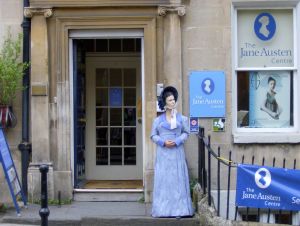We support our Publishers and Content Creators. You can view this story on their website by CLICKING HERE.
 This year marks the 150th anniversary of the birth of G.K. Chesterton, an anniversary worth celebrating wherever goodness, truth and beauty are valued. Sadly, however, this year has also seen the passing of two good men who were lifelong champions of Chesterton’s legacy.
This year marks the 150th anniversary of the birth of G.K. Chesterton, an anniversary worth celebrating wherever goodness, truth and beauty are valued. Sadly, however, this year has also seen the passing of two good men who were lifelong champions of Chesterton’s legacy.
In January, Father Ian Boyd, founder of the Chesterton Review, died at the ripe old age of eighty-eight. In 1974, as a young priest, he had founded the Chesterton Review on the centenary of Chesterton’s birth. He could not have expected that the Review would prove such an influential vehicle for the Chesterton revival during the following decades, nor could he have expected or imagined that the Review would still be going strong fifty years later.
I met Father Boyd on a handful of occasions but cannot say that I knew him well. He was an affable acquaintance rather than a friend. By contrast, I am honoured to claim a long and lasting friendship with the other champion of Chesterton, Aidan Mackey, who died on May 4 at the even riper old age of 101. Such was Aidan’s self-effacing sense of humour that I can imagine him saying that he had not so much reached a ripe old age as an over-ripe old age. Indeed, way back in 2009, when interviewed by a journalist with the UK’s Catholic Herald, he had quipped that he was “87 and crumbling by the minute”. Destined to live for almost fifteen more years, we can all rejoice that this particular cookie took a very long time to crumble.
It’s hard to imagine that Aidan was born in 1922, only five years after the Russian Revolution and four years after the end of World War One. It was the year in which Mussolini’s fascist party marched on Rome, establishing the world’s first fascist state, and a full eleven years before Hitler would rise to power in Germany. It was the year in which T. S. Eliot’s The Waste Land was first published and, most significantly in the present context, the year in which G. K. Chesterton was received into the Catholic Church. It is truly hard to fathom how much change Aidan had witnessed and experienced in his long and lingering life; it is, however, much easier to see how the wisdom of G. K. Chesterton would have kept him anchored to the permanent things amidst the maelstrom of “progress”, the dust storm in the desert of modernity which Chesterton critiqued so incisively and which Eliot satirized so insightfully.
As for my own friendship with Aidan Mackey, I can say that it has been lifechanging.
Way back in my wayward youth, when I was animated by angst and anger and by the animus against my neighbour that such angst and anger engendered, I was saved, under grace, by getting to know the works of G. K. Chesterton. And it was Aidan Mackey who supplied me with my first two Chesterton books.
It was 1980. I was nineteen years old. I was not interested in religion and was hostile to the Catholic Church, having learned to be “anti-papist” at my father’s knee. Nobody would have persuaded me to read a book about religion, and I would most certainly not have been induced to read a book defending the Catholic Church. But, as the cliché reminds us, God moves in mysterious ways.
I was interested in politics and economics and was looking for alternatives to both globalist socialism and globalist capitalism. Someone suggested that I check out the distributist ideas of G. K. Chesterton, recommending that I read Chesterton’s book, The Outline of Sanity, and an essay entitled “Reflections on a Rotten Apple” in The Well and the Shallows, another book by Chesterton. They also suggested I contact Aidan Mackey who was almost the only person flying the Chestertonian flag in the UK at the time, as Father Boyd was almost the only person flying the Chestertonian flag in the USA. Specifically, Aidan specialized in selling used copies of the books of G. K. Chesterton and also those of Hilaire Belloc, Chesterton’s great friend and comrade in arms, whom I would also begin to read avidly.
I was very poor at the time and recall the considerable investment of all too rare funds on the two volumes. The Outline of Sanity cost £4 whereas The Well and the Shallows, which was in very fine condition and was still wearing its dustjacket, cost me the princely sum of £12. By way of comparison, a pint of ale at the time cost about 35 pence.
My reading of Chesterton and Belloc would lead me eventually to the embrace of Catholic Christianity and my reception into the Catholic Church in 1989. A year or so later, I began working on a biography of G. K. Chesterton as an act of thanksgiving for GKC’s role in my conversion. Once again, Adian Mackey would play a crucial role in my life. He was running the G. K. Chesterton Study Centre in his home in Bedford, north of London, and he invited me stay in his home so that I could trawl through the treasure trove of Chestertonia, especially the countless unpublished letters by Chesterton which Aidan had collected or copied over the years. My biography of Chesterton would have been so much the poorer had it not have been for Aidan’s priceless assistance.
My move to the United States in 2001 meant that I saw Aidan much less. I met him once or possibly twice when he attended the annual Chesterton conferences in the United States, and I visited him on my visits to Oxford, the city to which Aidan moved following the death of his beloved wife Dorene. I last saw him in March of last year. He had reached his centenary of years in this vale of tears. I was struck by how sprightly and alert he was mentally but how frail he was physically. As I said goodbye, I think we both knew that it would be the last time we’d ever meet on this side of the grave.
Before I left, he insisted on giving me a gift for my daughter Evangeline. It was a very handsome hardcover boxed Winnie the Pooh Gift Set. He inscribed it “To Evangeline, with greetings and love from Ancient Aidan.” Most of the best things and people are ancient. Being introduced to Aidan Mackey was one of best things that ever happened to me and he was without doubt one of the best people I’ve ever known.
He has left us but he is not dead. In the words of Hilaire Belloc: “He rides his loud October sky: He does not die. He does not die.” But he is much more alive than a mere ghost or a mere memory. He is alive in that deeper sense that he has departed the shadowlands into the place beyond shadows. Perhaps we might even hope that he is supping ambrosial ale or sipping a celestial vintage with Chesterton and Belloc in the heavenly inn of which Chesterton wrote: “All roads point at last to an ultimate inn… and when we drink again it shall be from the great flagons in the tavern at the end of the world.”
With such a celebratory thought, I’ll conclude this celebration of Aidan Mackey, the Grand Old Man of Chestertonia, by raising a glass in his memory. Cheers, old friend. Cheerio!
The Imaginative Conservative applies the principle of appreciation to the discussion of culture and politics—we approach dialogue with magnanimity rather than with mere civility. Will you help us remain a refreshing oasis in the increasingly contentious arena of modern discourse? Please consider donating now.
The featured image is a sketch of G.K. Chesterton by an unknown author made no later than 1920, and is in the public domain, courtesy of Wikimedia Commons.
Share This Story, Choose Your Platform!
Go to Top

 Conservative
Conservative  Search
Search Trending
Trending Current News
Current News 






